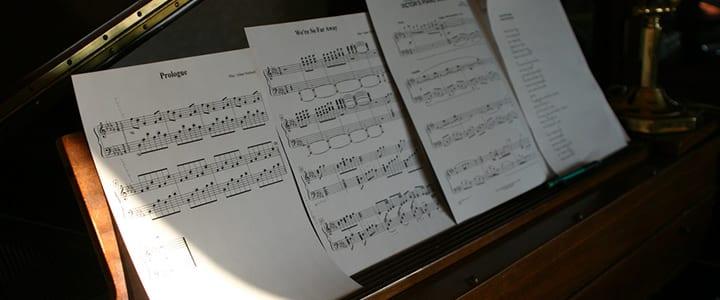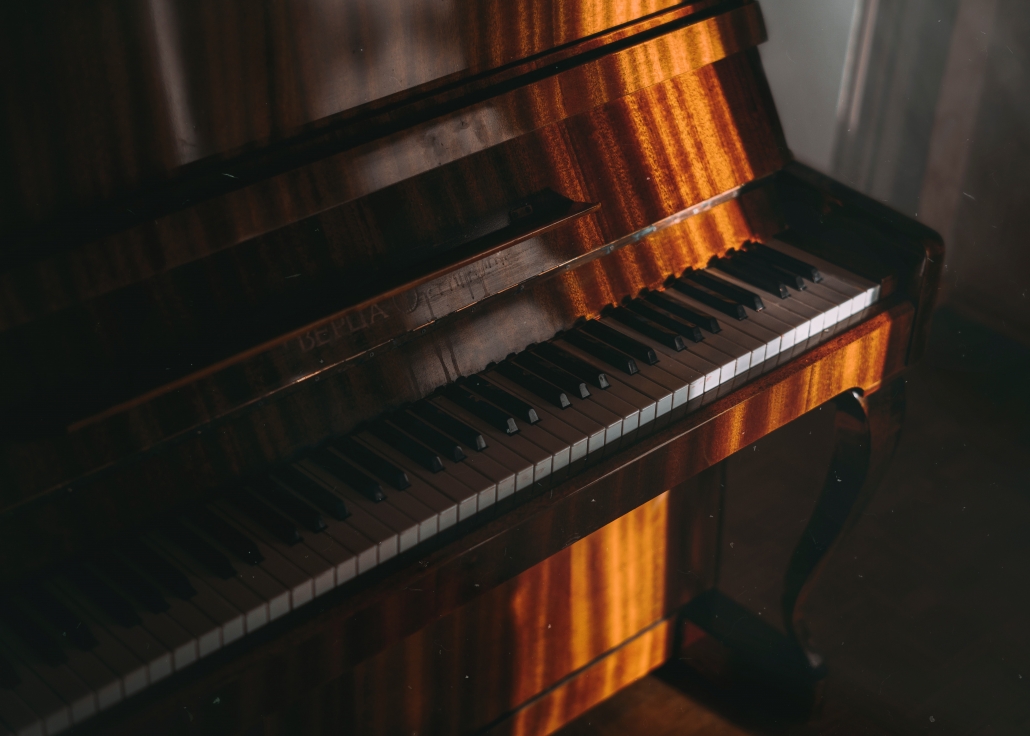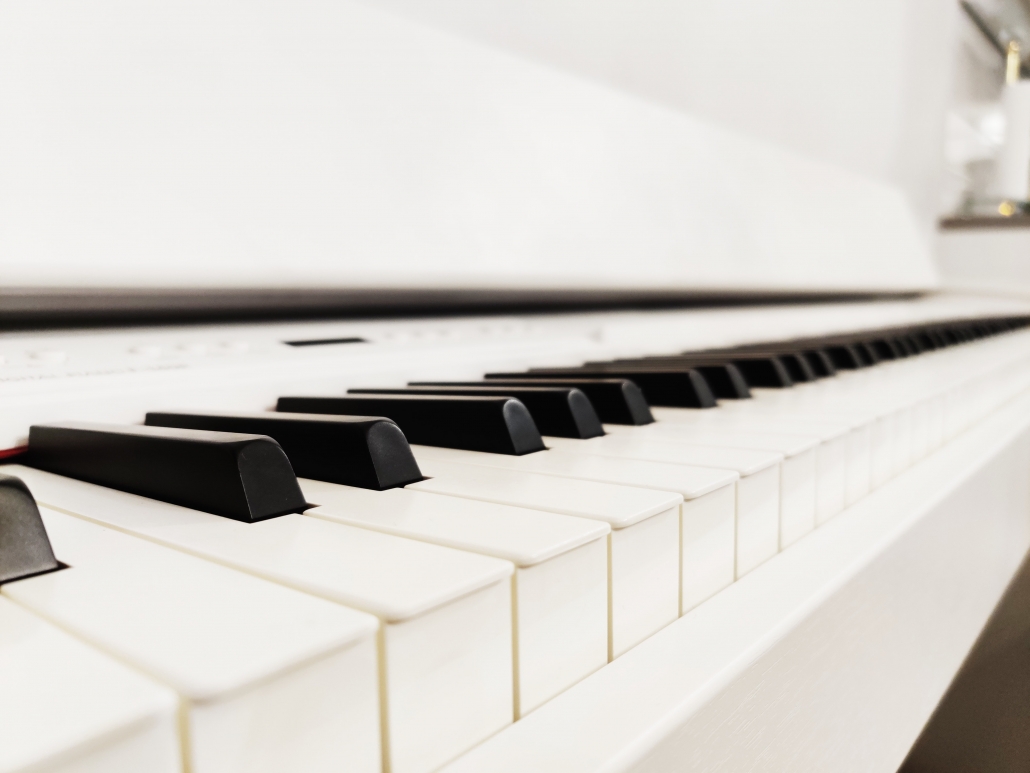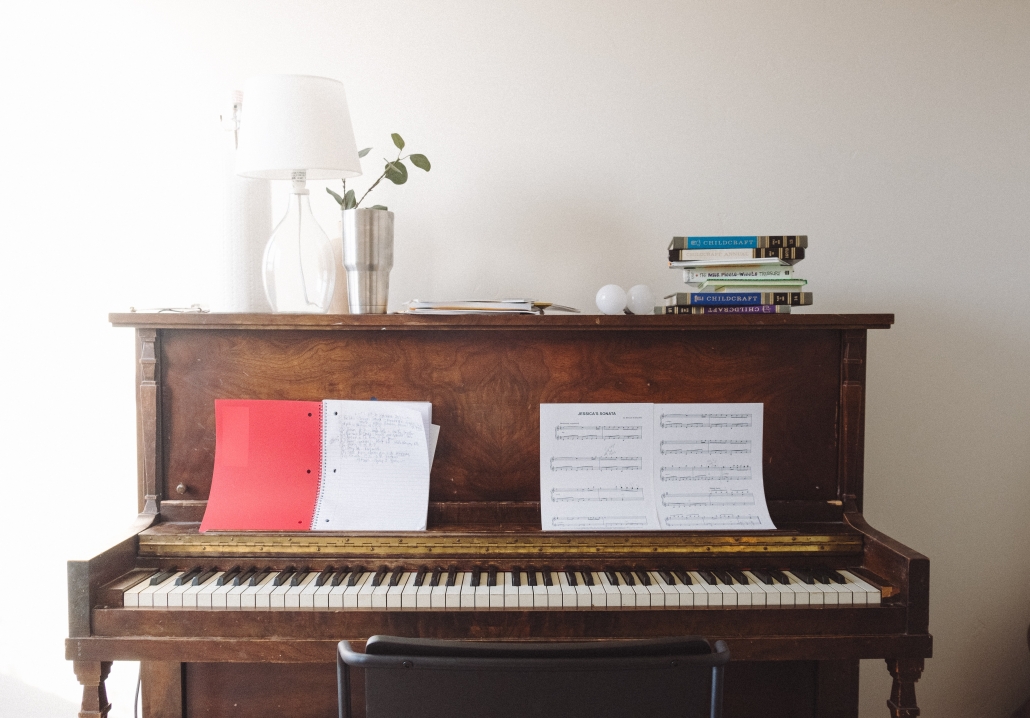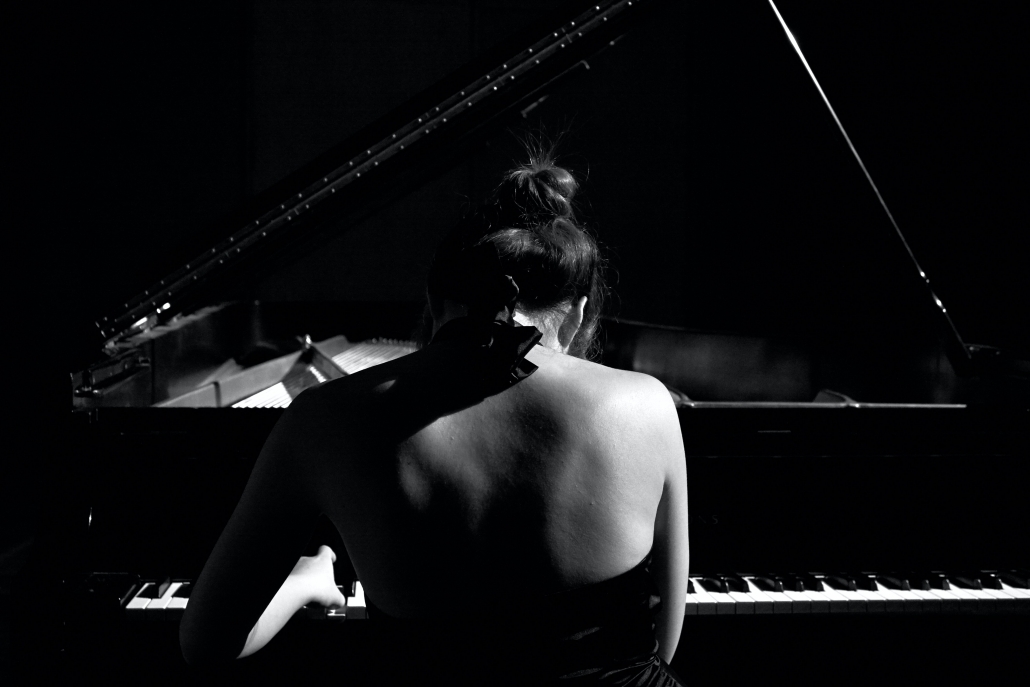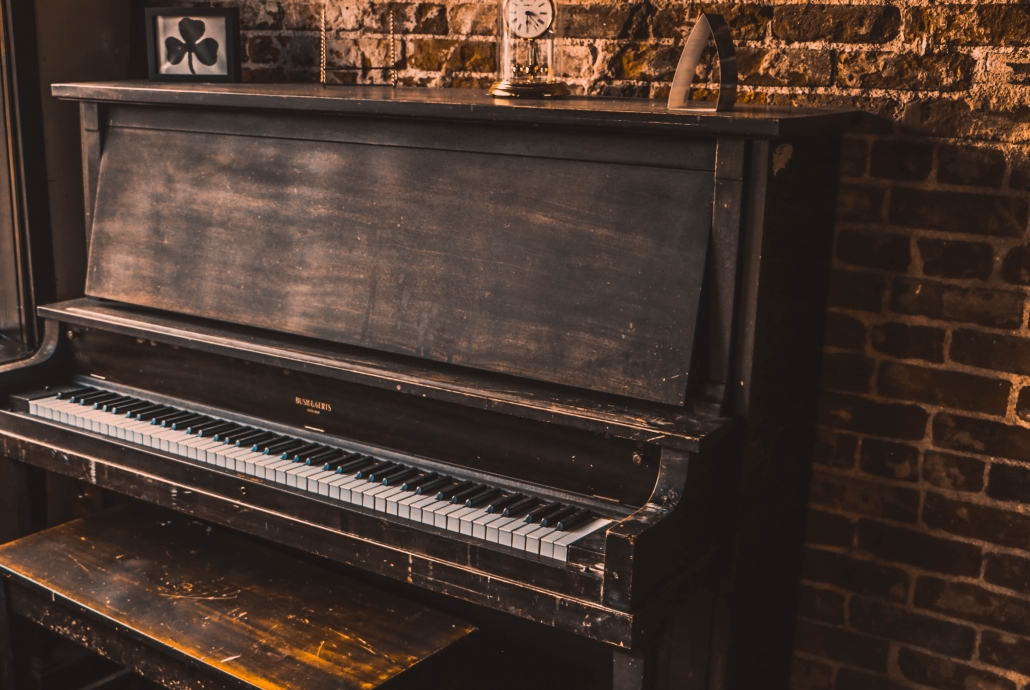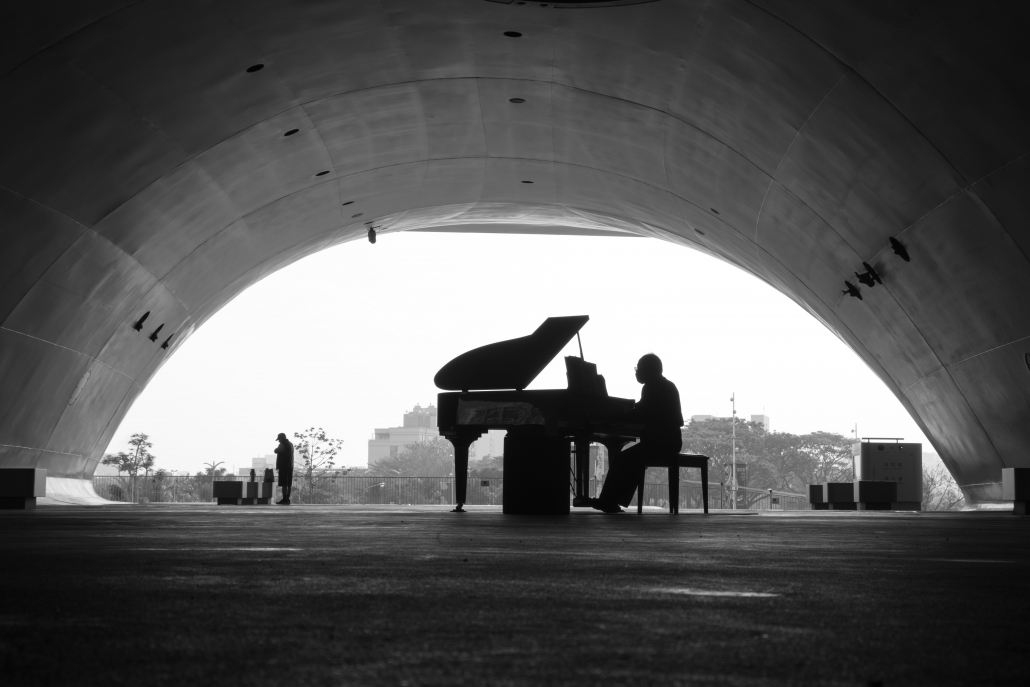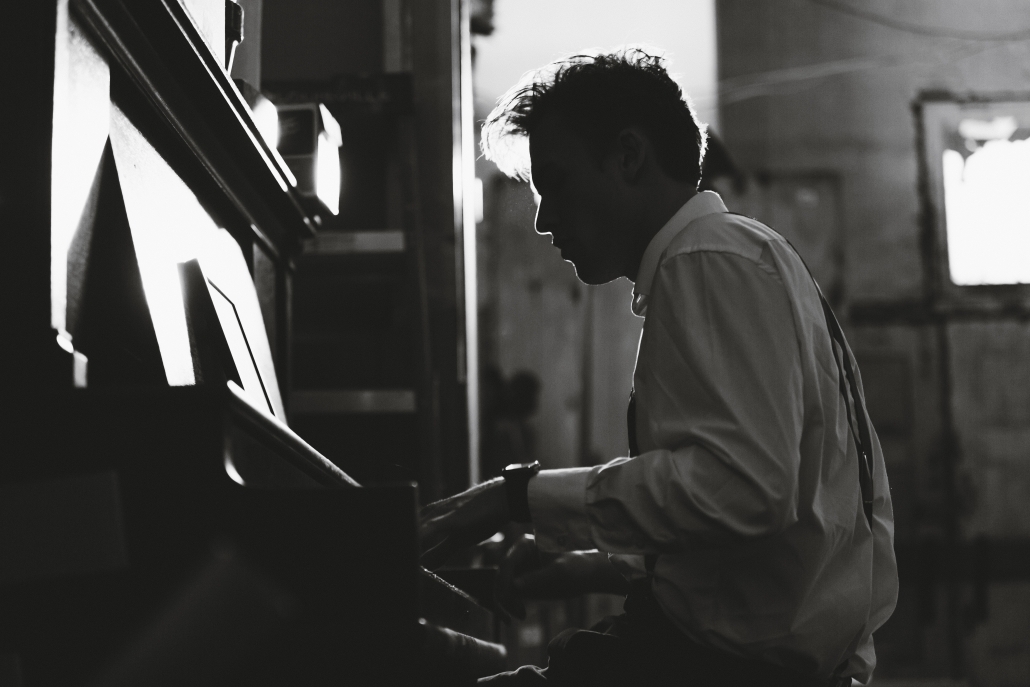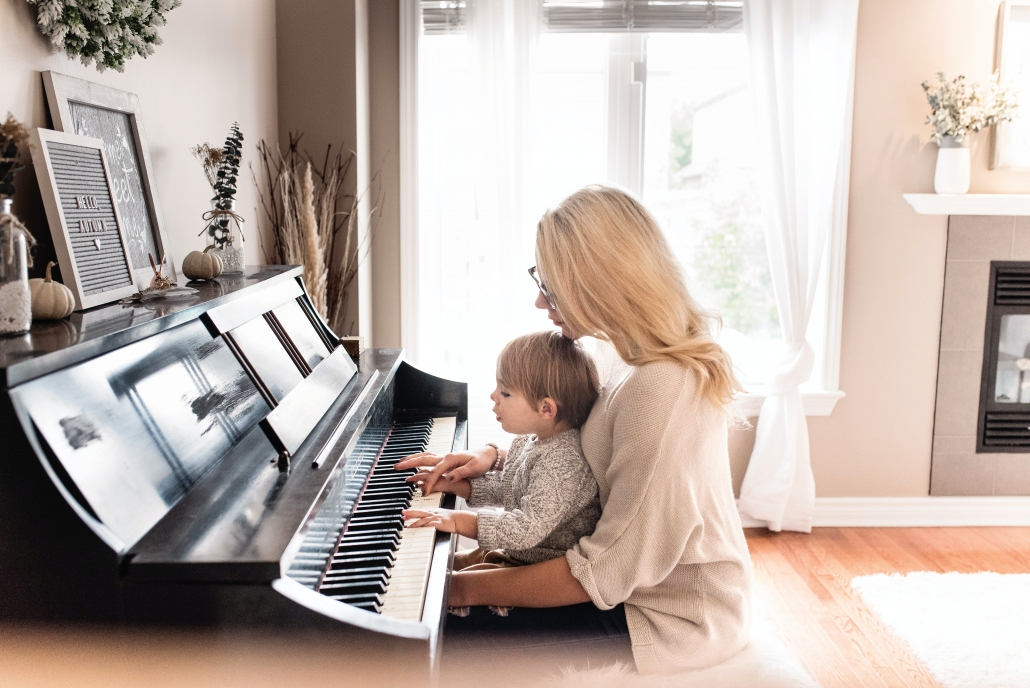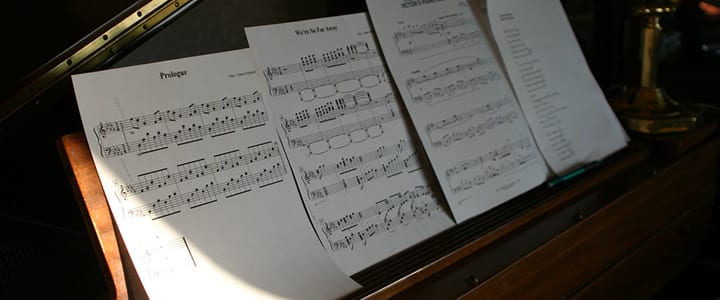 Have you decided you want to learn how to play the piano? Mastering a new skill can be challenging at first, so your enthusiasm to get started is a great first step!
Have you decided you want to learn how to play the piano? Mastering a new skill can be challenging at first, so your enthusiasm to get started is a great first step!
Playing the piano is a fun and rewarding experience, but it takes some time and effort to learn. If you’re just starting out, don’t get discouraged – everyone has to start somewhere!
Use this guide to help you conquer the learning curve that everyone wanting to know how to learn piano must overcome.
How Can I Teach Myself to Play the Piano?
Want to know how to learn piano? Follow these tips:
- Get a piano or a keyboard to practice on
- Train your arms and hands with the right positioning
- Do warm-up exercises each time you practice
- Practice for 30 minutes a day, five days a week
- Memorize notes and chords
- Get familiar with sharps and flats
- Make a practicing goal – and stick to it!
Of course, one of the best ways to learn how to play piano is to work with an instructor who knows exactly what it takes to learn the ropes. Sign up for lessons here, and check out the video below to get an idea of what you’ll learn in online piano lessons:
Learning Piano as an Adult: Setting the Right Goals
No one expects you to become a concert pianist overnight. Set reasonable goals to help you feel accomplished and prevent discouragement.
Set Practice Goals
Strive to practice, say, 30 minutes every weekday. Practicing for an adequate amount of time is the key to improving.
Set Completion Goals
If you start a piece on Monday, get a feel for how difficult it is. Set a goal to have both hands of the first section learned by the end of the week. Each day you can see how far you still have to go so you can cater your practice times accordingly.
Set Style Goals
Perhaps you’re interested in how to learn piano because you want to play one particular piece or style of music.
You’ll need to start out with the same basics no matter where your path eventually turns, but keep that goal of playing a specific style or song in the back of your mind at all times. When you get discouraged, remind yourself how much you want to be able to play “Clair de Lune” or Scott Joplin’s most well-known ragtime pieces.
Beginner Techniques for Practicing Between Lessons
When you sit down at the piano with a new piece of music, use these beginner techniques to help you learn it without getting frustrated:
Complete Some Music Theory Exercises
A huge hurdle you may face as you start piano lessons is reading music. Your piano teacher can help you track your music-reading competence and assign pieces that match your skill level by doing music theory exercises.
Study the Piece
Familiarize yourself with the piece before you start playing. Look for time and key signature changes, repeats, and recurring passages. This eliminates the element of surprise as you play through the song for the first time.
Start With One Hand
When your teacher first starts teaching you how to learn piano, you’ll typically begin with one-hand pieces. Most of these will use the right hand only or just a few fingers on each hand. When you move on to more complex pieces using both hands, start by learning the song or one passage with just the right hand. Then switch and count it out with your left hand. When you feel ready, put the two hands together.
Slow Down the Tempo
You’ll be tempted to play the song at full speed right away, especially if it’s a song you’ve heard before, such as a well-known classical or ragtime piece. Just remember – if you can’t play it slow, you can’t play it fast! Start at half- or quarter-speed using the one-hand-at-a-time technique, and slowly increase the tempo as you get more comfortable.
How to Learn Piano: Tips for Staying Motivated
Learning to play the piano requires focus and motivation over a long period of time. If you’re struggling to maintain your motivation, keep the following points in mind:
Don’t Overdo It
Don’t practice for hours on end every day: If you start out with this habit, you’ll probably get burned out. Then your practicing could do a complete 180, becoming ineffective and short-lived. It can be hard to get back on track if you get burned out early on.
Don’t Overobsess
Don’t spend your entire practice time on difficult pieces. The whole purpose of playing the piano is to enjoy the sound of your own music. Start out each practice session with a warm-up that includes your standard scales and arpeggios, plus other assignments from your teacher. Then, before you move on to a new, challenging piece, open up to a song you already feel comfortable with. Reaffirm your playing abilities before you start hammering out a difficult piece.
Find Ways to Make it Fun
Talk to your teacher about making piano playing more enjoyable: If you feel your interest waning, let your teacher know. Perhaps you can sit down together and reorganize your lesson structure, select new pieces that interest you more, or revisit your goals to bring the fun back into learning to play the piano.
How Private Piano Lessons Can Help You
Every student’s journey should start with taking private piano lessons with a qualified teacher. Sure, there are plenty of beginner books you can find out there to start teaching yourself, but a private teacher offers several unmatched benefits:
One-on-One Guidance
It’s easy to misinterpret the way a specific piece should be played unless you’ve heard it before and can mimic someone else’s style. The one-on-one guidance provided by a private piano teacher can help unleash the musician inside you in such a way that’s often impossible if you attempt to teach yourself.
Answers to Your Questions
If you have a question about a technique or a mark on the sheet music, simply turn to your teacher and ask. The alternative is to search for guidance online or in a music theory book, but nothing matches the comprehension speed of asking your teacher to show you the proper technique or explain the symbol on your sheet music.
Accountability
With private piano lessons, there’s someone to hold you accountable. Being your own teacher makes it easy to slack off and not practice. Meeting weekly with a private teacher, on the other hand, holds you accountable for the goals you set the week before, which can help you progress faster.
Harder Songs
You’ll also get songs that go outside your comfort zone: How can you expect to improve if you don’t ever try anything harder? On the flipside, you could have an aspiration to play a particularly difficult piece and attempt it before a firm foundation is in place. A qualified teacher can show you how to learn piano at a pace that’s challenging without being completely discouraging.
How Long Does it Take to Learn Piano?
So how long does it take to learn the piano? It varies.
On average, people who are interested in how to learn the piano by themselves will see good progress within three to five years of study and practice – provided that you are consistent.
If you work with a teacher, you might be able to progress more quickly.
In any event, no matter how skilled you want to become at playing the piano, your progress as a pianist will ultimately depend on how diligently and effectively you practice.
How to Learn to Play the Piano: What You’ll Cover
So, what can you expect to learn with all the effort you put into taking piano lessons? Here are just a few:
The Fundamentals of Playing the Piano and Basic Patterns
Whether you’re interested in learning how to play the piano with an instructor in a class or you want to know how to learn piano by yourself, one thing that all techniques have in common is that you’ll have to tackle the fundamentals first.You can’t start playing complicated jazz songs or doing fancy-sounding improvisations until you know the basics. Among these fundamentals are things like:
- Learning to read music
- Figuring out where to place your hands on the keyboard
- How to build your own chords
- How to identify patterns (like verses and chorsues) in music
- Building dexterity so that playing the piano doesn’t feel awkward
- Figuring out how to play each hand separately and at the same time – putting the hands together is the hardest part of learning any song!
Sight-Reading Skills
This means the ability to look at a piece of sheet music and understand it quickly. Not every accomplished piano player has good sight-reading skills, but if you make it a goal, you can develop the talent in yourself.
Piano Chords and Notes
If you’re interested in how to learn piano chords and notes, taking piano lessons is one of the best ways to do so. You’ll not only learn how to identify notes in sheet music and on the piano keys, but you’ll learn the chords and notes well enough so that you can sight-read and perhaps write piano songs of your own one day. Knowing how to learn piano notes and chords is essential if you ever want to become truly skilled at playing the piano.
Expanded Repertoire
The more pieces you learn, the larger your repertoire becomes. And if you master the skill of memorizing music, you can showcase your repertoire wherever there’s a piano, even if you don’t have any sheet music with you!
Discipline
Learning to play piano takes plenty of dedication and discipline. What you learn seated on a piano bench can transfer to other areas of your life.
Tenacity
It’s okay to make mistakes. Even professionals make mistakes, so it’s important for you to realize you will, too. You may perform in recitals that push your nerves to the limit. It’s actually good for you if you make a mistake in front of an audience, because you’ll realize that your life isn’t over.
Are Pianos Easy to Learn?
How hard is it to learn piano? Piano isn’t necessarily the hardest instrument to learn – but it can be tricky. And it does take time!
Learning to play the piano can be a fun and rewarding experience, but it takes time and practice to get good at it. If you’re just starting out, don’t be discouraged if you find that learning new songs or techniques is difficult at first – with enough patience and regular practice, you will start seeing results.
One of the best ways to improve your playing skills is to take lessons from a professional instructor; this way, you can get feedback on your playing and learn new techniques in a structured setting.
However, if taking lessons isn’t an option for you, there are plenty of other ways to improve your piano-playing skills. Join a music class or workshop, watch online tutorials, or listen to as much music as possible. All of these steps can help you learn piano!
Ready to find a teacher near you? Find out how to learn piano online here – and find safe, qualified piano teachers for in-person or live online lessons.
Photo by A.K. Photography
Megan L.
